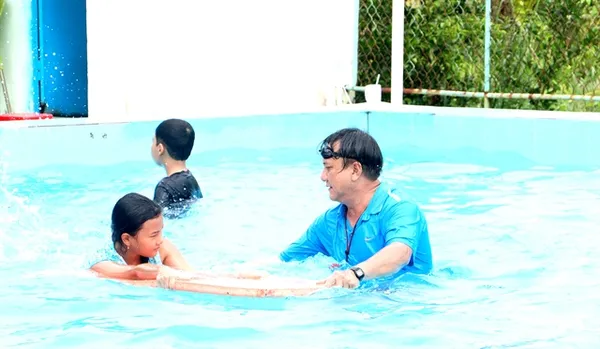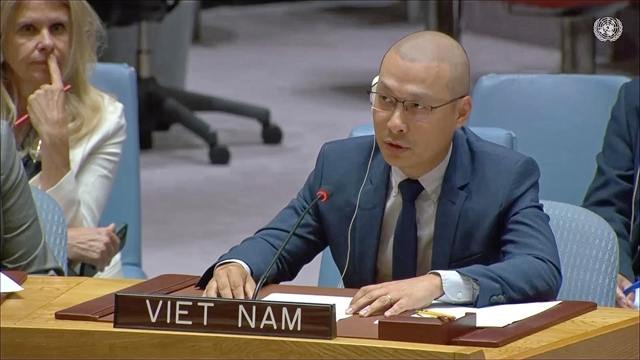 Politics & Law
Politics & Law

 |
| Minister Counsellor Nguyễn Hoàng Nguyên, deputy head of the Permanent Delegation of Việt Nam to the UN, addressed the UN Security Council (UNSC)’s annual open debate on children and armed conflict. — VNA/VNS Photo Thanh Tuấn |
HÀ NỘI — Việt Nam will closely collaborate with the international community, the United Nations (UN) and related parties in preventing and solving conflicts, contributing to ensuring a safe and bright future for children worldwide, Minister Counsellor Nguyễn Hoàng Nguyên, deputy head of the Permanent Delegation of Việt Nam to the UN, told the UN Security Council (UNSC)’s annual open debate on children and armed conflict held in New York on June 27.
The Minister Counsellor emphasised that the top priority of the international community as well as each country is to address the root cause of conflicts via promoting sustainable development, helping children avoid the consequences of war and violence.
He affirmed that respect for the UN Charter, international law and international humanitarian law plays a significant role in children protection. All parties in conflicts must comply with their obligations under international law and relevant UN resolutions, including the Security Council Resolution 2573 (2021) which was proposed by Việt Nam on the protection of civilians in armed conflicts.
The representative of Việt Nam held that in order to increase the effectiveness of children protection in conflicts, it is necessary to strengthen collaboration among member countries and related agencies of the UN such as the UN Children’s Fund (UNICEF), UN Development Programme (UNDP), and UN peacekeeping missions, among others. The comprehensive approach will help to create a framework to connect peacekeeping missions, economic development with child protection prior, in and post conflicts.
The UNSC’s annual open debate, which was chaired by the Republic of Korea as June’s Council president, saw the participation of former Secretary-General of the UN Ban Ki-Moon and representatives of more than 80 countries and related international organisations.
At the session, delegates expressed concerns about the tendency of a significant increase in violations against children in conflict areas, resulting in many children being killed, injured or separated. They also discussed current issues about child recruitment and use, killing and maiming, abductions, rape and other forms of sexual violence, attacks on schools and hospitals, and the denial of humanitarian access. Many countries condemned the acts of killing children in conflicts and attacks on educational and health facilities that are taking place in many parts of the world. — VNS